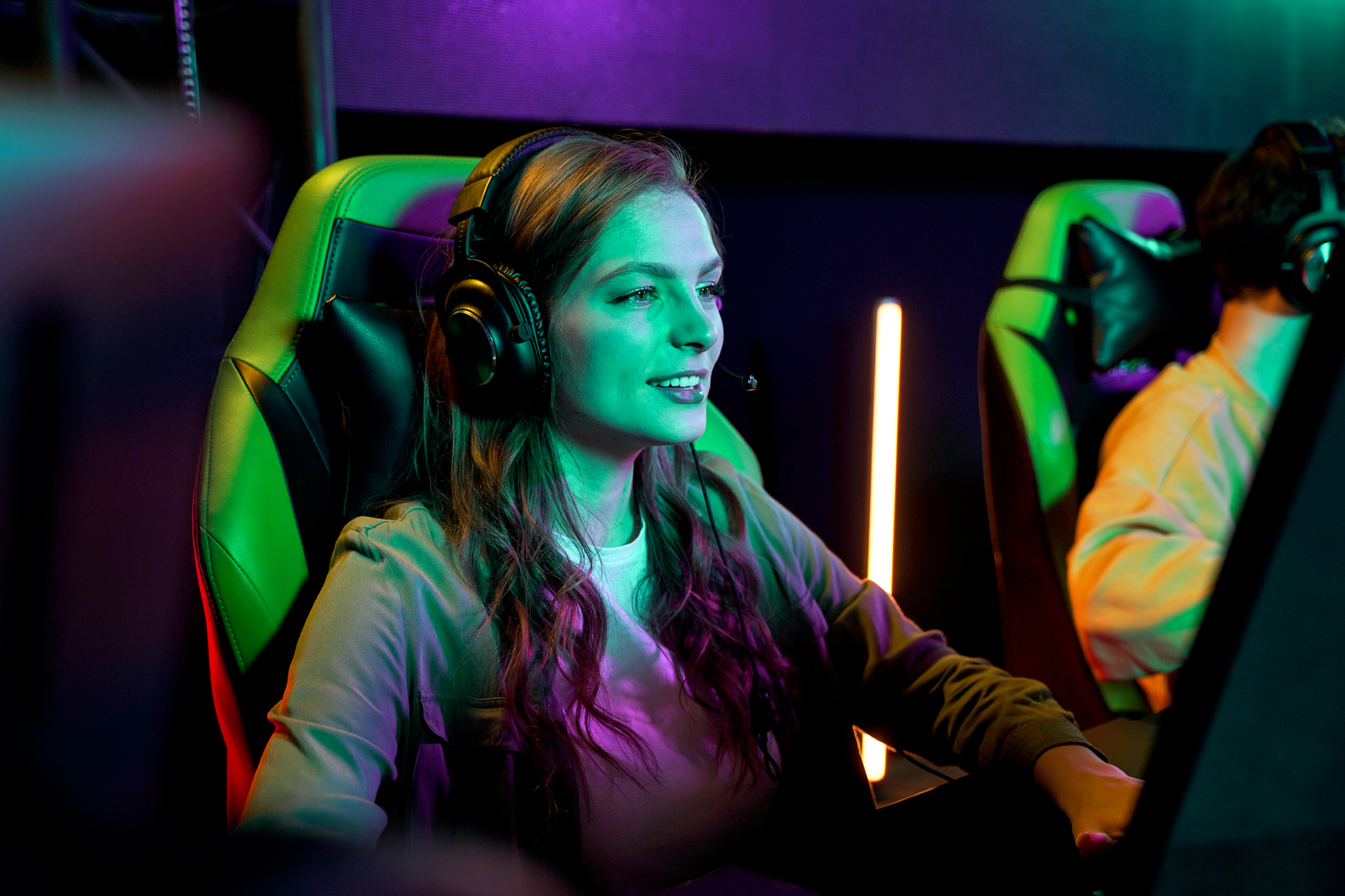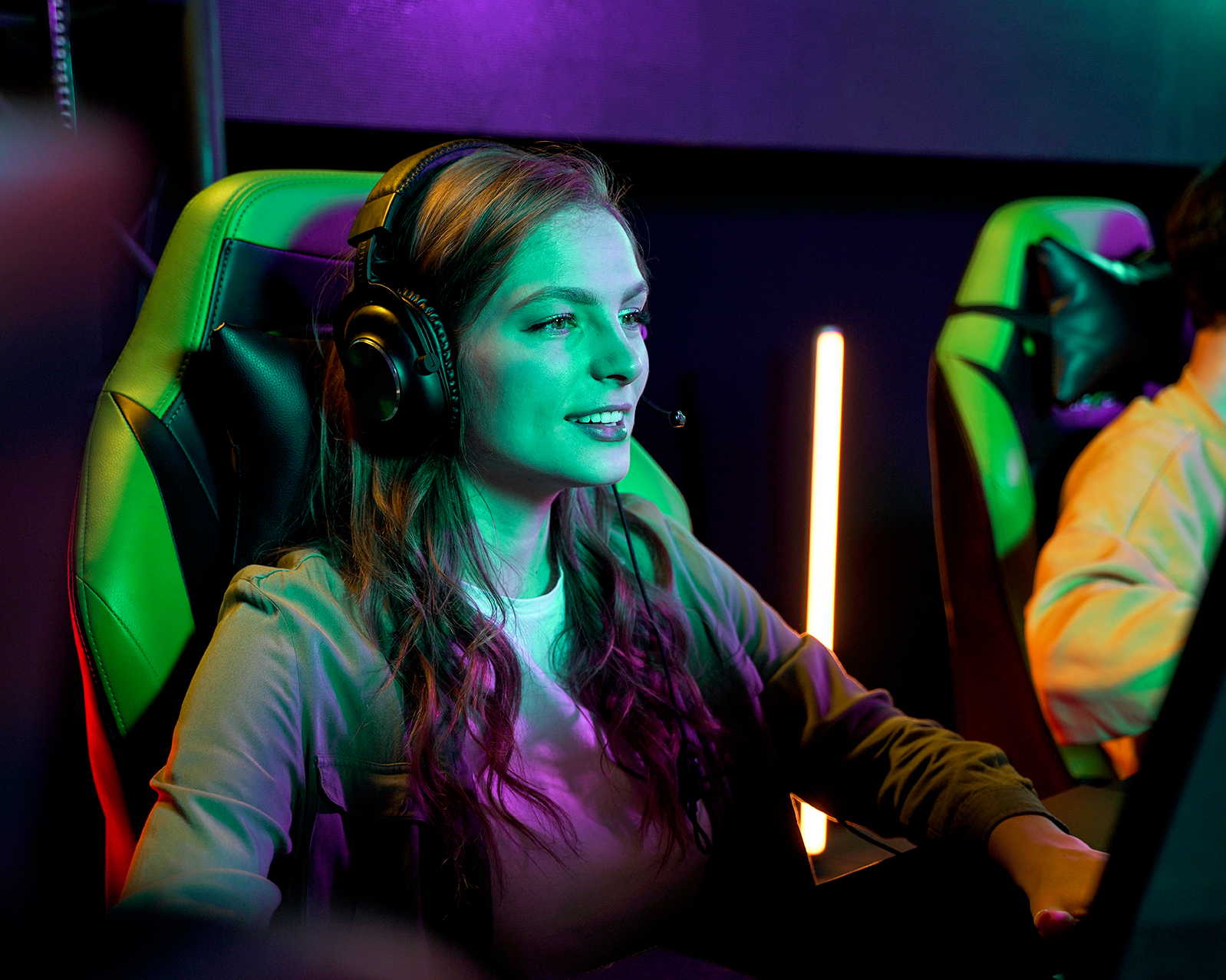Gender-based toxicity still thrives in gaming
Gender-based toxicity in gaming manifests in various, often insidious ways.
The gaming realm is often celebrated as an inclusive sanctuary offering an escape from reality, thrilling adventures, and connections with kindred spirits. Yet, this world is shadowed by toxicity, a phenomenon that impacts men and women. However, women experience a completely different form of toxic behavior.
Yes, women play video games
The gaming industry has long been dominated by men since its inception. However, women have always been its vital part. For instance, River Ride, one of the biggest 8-bit era hits, was developed by Carol Shaw. Another prominent figure of the dawn of the industry was Roberta Williams, the co-founder of Sierra Online, the company behind iconic adventure games. Interestingly, Williams was also responsible for Phantasmagoria: a horror experience and not your typically girly game. Despite the women's presence in the industry from the early days, they are frequently viewed as outsiders, whether they play or make video games.
On that note, women are frequently directed towards games that are stereotypically associated with their gender: online dress-up games, The Sims, Nintendogs, Animal Crossing, and more similar titles. These games are often viewed as easy, simple, and almost sanitized, without the same status as action-packed games like Counter-Strike, Battlefield sports games, and other, stereotypically masculine titles.
This artificial, often unfounded, classification already diminishes the position of women in the gaming industry. However, it gets interesting when we take a look at how many copies of these titles were sold. Animal Crossing sold over 45 million copies, making it the second most purchased game on Nintendo Switch. The Sims series boasts over 200 million sold copies during the entire existence of this franchise. These numbers speak for themselves: perhaps these “girly” games are not so girly after all? Or maybe the female part of the gaming community is much bigger than people think?
“I vividly recall being asked about the types of games I enjoyed. That person said it's hard to imagine a girl playing shooters and I didn’t look like someone who played such genres. On another occasion, during a gaming convention, an interviewer asked me during a live interview if I had a boyfriend. It’s not difficult to imagine how embarrassing it was to hear this question in front of a crowded audience. People often say that we are being too emotional and why we care about silly remarks so much, but the truth is, experiencing this behavior is simply tiresome” says Marta Wawrzyniak from a platform for gamers GAMIVO.
The array of uncomfortable and often worrying encounters women face could fill a whole book. Certainly, these questions or comments do not always harbor malicious intent. Quite frequently, they simply highlight the fact that the presence of women in the gaming community is still perceived as a novel and unfamiliar concept. Yet, sources give us a completely different view on this topic.
In Newzoo’s spotlight of the Global Gamer Study from 2023, we learn that close to half of all gamers are women. When considering the entire online population, 72% of women and 81% of men engage in gaming. The numbers don’t lie: women do play video games.
Many faces of gender-based toxicity
It’s important to acknowledge that men experience toxicity too. Many gaming communities have no mercy for anyone.
“I’d say that men can be as horrible to one another as to women when jumping on voice chats. The idea of false anonymity in gaming makes people let loose and spew the most horrible things without hesitation and remorse. However, it is important to note that the harassment and toxicity faced by women in gaming communities are often rooted in sexism and misogyny. It goes beyond just being mean or competitive” continues Marta.
Gender-based toxicity in gaming manifests in various, often insidious ways. These range from seemingly harmless sexist jokes and uninvited flirting to extreme cases of rape threats and harassment. Unlike their male counterparts, women frequently face aggressive forms of exclusion and hostility that directly target their gender. Interestingly, not only that kind of behavior can be annoying. Exessive niceness, flirting, and sexual innuendos are other forms of unwelcome behavior that can turn a simple gaming session into a festival of objectification.
Skill level doesn't matter
A particularly troubling aspect of this toxicity is that it occurs regardless of a woman's skill level, experience, or performance. There are dozens of examples where female games are praised for their performance, but this attitude changes in seconds as soon as they reveal their gender, especially in voice chats. The team’s attitude often shifts dramatically, leading to harassment, slurs, and active attempts to ruin their gaming experience, including jeopardizing the entire team’s chances of winning. Such examples alone suggest how vile attitudes towards women can get.
Take, for example, the experiences of popular streamers who share their experiences during live streams. A streamer SteffyEvans made an entire series of videos showcasing her encounters with toxic players who didn’t hesitate to throw slurs and so-called kitchen jokes even though she often outperformed other players.
Despite their skill and dedication to their passion, these women have faced relentless harassment simply for being female. Such behavior is not only disheartening but profoundly damaging to the community.
An experiment by Maybelline New York demonstrated this phenomenon perfectly. The study showed that certain players' attitudes changed dramatically upon learning their teammate's gender, irrespective of their performance. It’s a very clear indication that the issue is rooted in gender discrimination, rather than any objective measure of skill.
In a study “Insights into Sexism: Male Status and Performance Moderates Female-Directed Hostile and Amicable Behaviour” by Kasumovic and Kuznekoff, the researchers argue that lower-skilled players were more hostile towards a female-voiced teammate, especially when performing poorly. In contrast, lower-skilled players behaved submissively towards a male-voiced player in the identical scenario. This behavior might stem from the fact, that poorly-performing people are afraid of losing their status in the social hierarchy.
Partial or complete exclusion
It shouldn't be difficult to understand that facing bullying and harassment makes girls less interested in communicating via voice chats. Moreover, many of them prefer to pick gender-neutral nicknames, just to avoid potential drama. This forced anonymity denies them full participation in gameplay and community interactions. If we take into account the fact that multiplayer games mostly rely on cooperation and communication, we can see that women can’t fully experience the community aspect of many games.
Workplace toxicity in the gaming industry
Gender-based toxicity is not confined to the player community; it extends into the gaming industry itself. Misogyny, harassment, and the undermining of women's expertise are distressingly common. Recent high-profile cases, such as the lawsuit against Blizzard Entertainment show that even the biggest players in the industry have reasons to be ashamed of.
In 2013, the lead artist working on Black Myth: Wukong expressed his hateful view that men and women can’t enjoy the same games, throwing some slurs on the way. It’s not the only example from the very same studio, which turned out to have a history of toxic work culture.
The stark gender gap in the gaming industry deepens this issue. While women make up about 50% of the gaming community, they account for only 30% of those working in game development. This disparity underscores the need for systemic change to create a more inclusive environment for women in both playing and creating games.
The changing image of women in video games
Fortunately, there are signs of progress. The representation of women in video games is evolving, with more female characters depicted in non-objectifying, non-sexualized roles. Female characters are more diverse, complex, and realistic. The transition isn’t of course smooth. When Horizon: Forbidden West released the first promo materials, many players were outraged by Aloy’s looks, as they noticed naturally occurring (and barely visible) peach fuzz on her face, suggesting that the character has a beard.
However, developers and gaming companies are starting to acknowledge the importance of diversity and representation in their games. This can be seen in releases such as Baldur’s Gate 3. It’s a perfect example of how to write good characters, with strengths, flaws, and motivations that are not centered on gender stereotypes.
Hopeful future
Fostering a more inclusive gaming culture, where players of all genders feel valued and respected, is a crucial shift. Yes, eradicating toxicity probably will never happen. Nonetheless, a noticeable change is underway.
“Having been part of the gaming community for years, I see a change in how female gamers are perceived. The rising popularity of streaming has inspired many girls to engage in gaming, promoting increased acceptance and support for women in the gaming community. GAMIVO, my workplace, boasts a large percentage of women passionate about gaming and everything that concerns this topic: from streaming, attending events, cosplaying, to simply playing video games as much as other colleagues,” concludes Marta Wawrzyniak.
The toxicity problem has always plagued online environments of video games, but it is noticeable that many communities are working towards creating safer and more inclusive spaces for players. Developers are working on more and more strict policies in their games, mercilessly banning toxic players. Although this process is still far from perfect, we can see a shift in the attitude toward toxicity in both the industry and the games themselves.
Press release distributed by Pressat on behalf of GAMIVO, on Thursday 1 August, 2024. For more information subscribe and follow https://pressat.co.uk/
Video Games Gaming Female Gamers Computing & Telecoms Entertainment & Arts Lifestyle & Relationships Media & Marketing Men's Interest
You just read:
Gender-based toxicity still thrives in gaming
News from this source:



